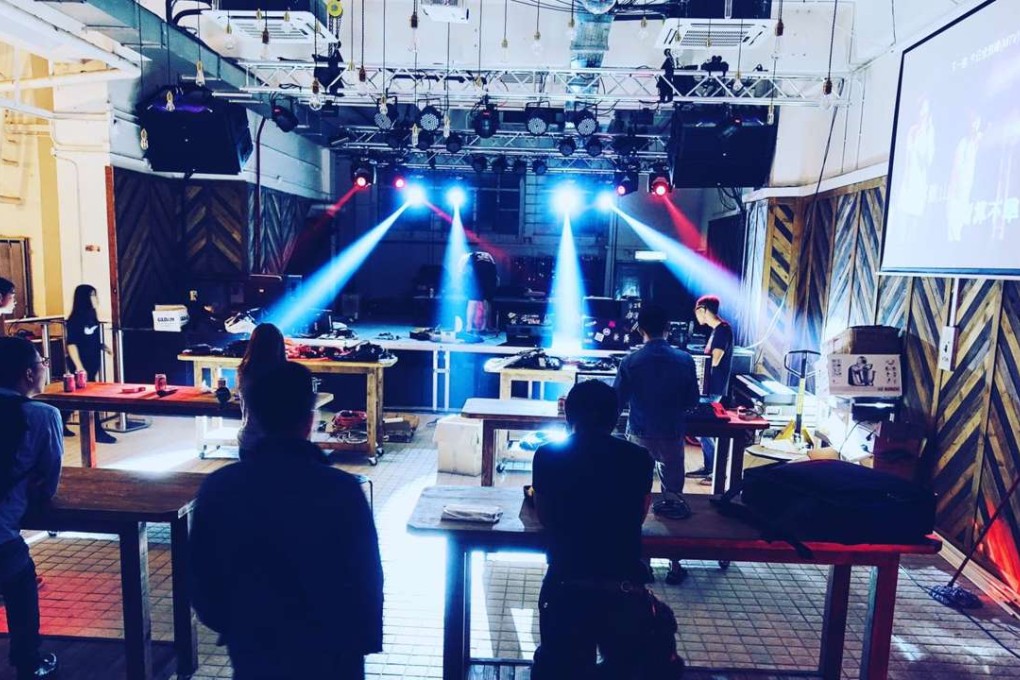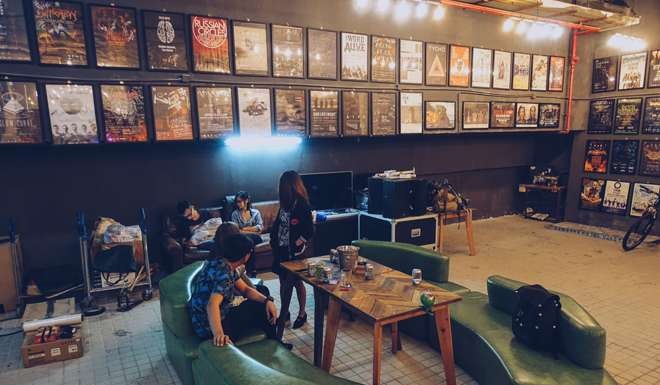Advertisement
Hidden Agenda’s relaunch sparks hope for Hong Kong’s underground indie clubs
A first look inside indie club’s new venue in Kwun Tong as it reopens with tuck shop to avoid further licensing disputes
Reading Time:3 minutes
Why you can trust SCMP

The organisers of revived indie club Hidden Agenda say they are “cautiously optimistic” about the future of the underground music scene in Hong Kong as they prepare to relaunch at a new venue.
The music showcase was forced to move out of its former venue at the Winful Industrial Building, Kwun Tong, in mid-October because it had been operating illegally.
Founded in 2009, it has previously been forced to relocate over similar battles with the Lands Department for operating without a commercial licence.
Advertisement
But on December 15, it will relaunch at the Hung To Industrial Building, also in Kwun Tong, with a headline set from American punk rock band Anti Flag, after crowdfunding more than HK$500,000.

Advertisement
Kakei Ng, Hidden Agenda’s media spokeswoman, said she was overwhelmed by the enthusiasm from the club’s supporters.
Advertisement
Select Voice
Choose your listening speed
Get through articles 2x faster
1.25x
250 WPM
Slow
Average
Fast
1.25x